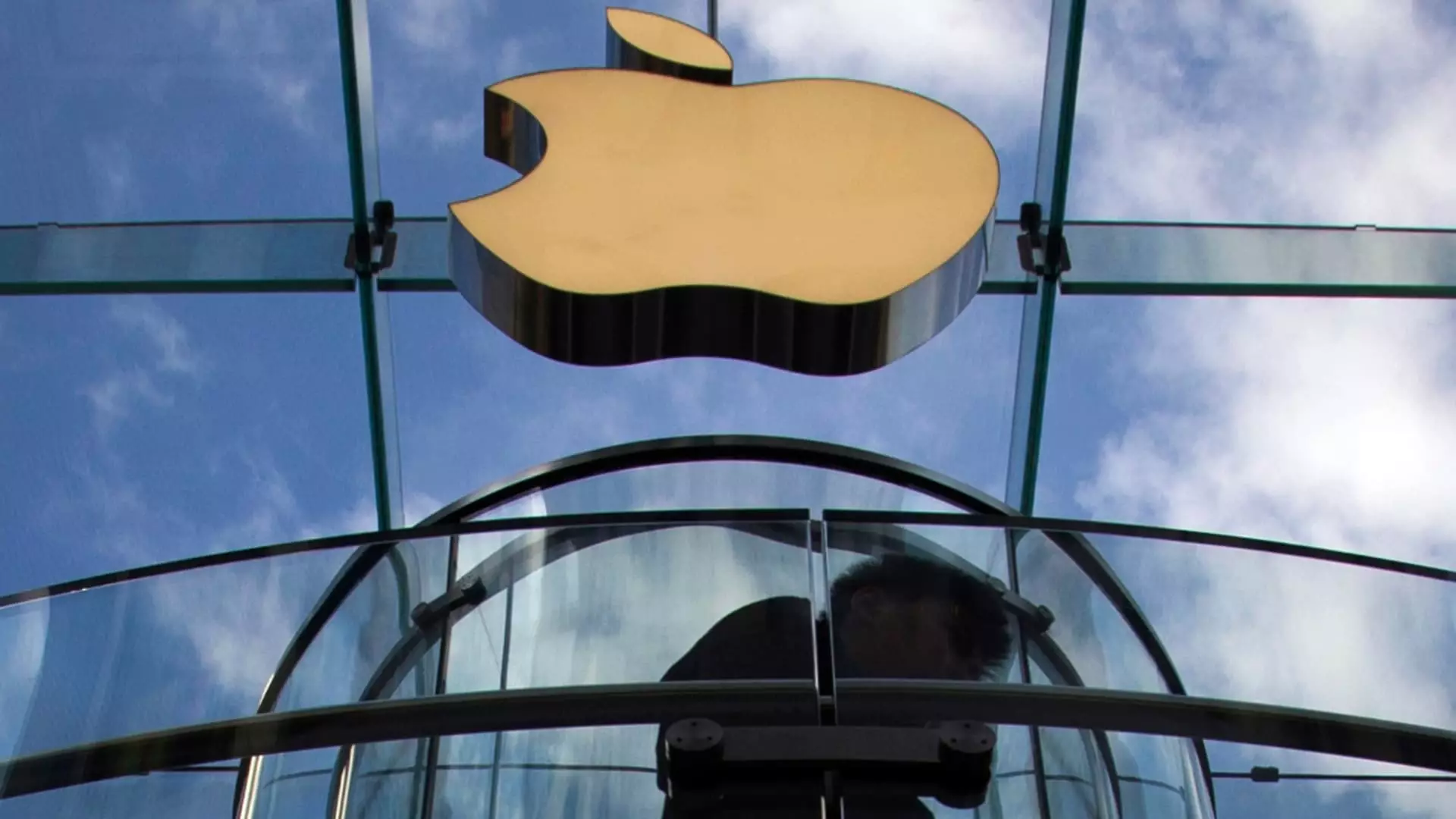The banking sector often takes the lead in guiding investor sentiment, particularly when it comes to the technology giants that dominate the market. This week, several firms made notable moves to upgrade or downgrade various companies, underscoring a blend of optimism and trepidation surrounding the tech industry. At the forefront, JPMorgan’s reiteration of Qualcomm as “overweight” reflects a belief in its resilience amid a seemingly declining smartphone market. The firm emphasizes that Qualcomm’s strong performance in IoT and automotive sectors should not be overlooked, especially during a time when consumer interest in smartphones wanes.
However, while this may seem like an indicator of stability, one cannot ignore the cracks in the smartphone ecosystem. The trend of stagnating demand for smartphone devices raises questions about over-reliance on this section of the market. Even in the face of strong cash flow and innovative technology, Qualcomm and other players might find themselves in more peril than optimism suggests. After all, a one-dimensional approach could be disastrous in a market that demands diversification and adaptability.
The AI Revolution: A Double-Edged Sword
ServiceNow’s upgrade from Truist to “buy” speaks volumes about the company’s potential to dominate the enterprise IT landscape, especially as AI takes center stage. The firm’s strategy to utilize macroeconomic uncertainty to fortify its standing against competitors highlights a growing reliance on artificial intelligence for growth. On the surface, this transition seems beneficial, as it could help streamline corporate operations and cut costs.
Nevertheless, we must question the long-term implications of such shifts. Are we reshaping our workforce entirely in favor of machines and algorithms? The increased focus on AI-driven solutions raises ethical concerns about the future of jobs not only in tech but across all sectors. While ServiceNow may be poised to thrive, a valid apprehension remains: What happens to the frontline employees as enterprise giants increasingly lean on digital solutions?
The Paradox of Downgrades
Banks such as Redburn Atlantic Equities downgrading Procter & Gamble to “neutral” opens the door to a deeper discussion about perceived stability in entrenched market positions. The firm argues that P&G possesses a strong balance sheet yet has limited upside prospects. This paradox leaves investors questioning whether market giants are truly immune to broader economic fluctuations.
The truth is, being “defensive” may no longer cut it in a nuanced financial landscape. If companies like P&G — largely characterized by established consumer trust — begin to falter, it raises alarms for even the most conservative investment strategies. A quiet stagnation is often more alarming than a blatant decline, presenting a precarious balance between confidence and caution.
Mixed Signals: Financial Giants Under Pressure
Despite reported strong earnings, companies like Apple face legal challenges that could unsettle investor confidence. Wells Fargo remains optimistic by maintaining an “overweight” rating despite the shadow cast by a recent ruling against Apple regarding its App Store practices. Here, the intersection of legalities and performance metrics creates a volatile environment where future growth may be hindered.
In stark contrast, other firms, like HSBC, are downgrading UPS to “hold” amidst declining demand and uncertainty from tariffs. This juxtaposition is illustrative of a broader theme of instability lurking beneath seemingly strong financial results. It becomes abundantly clear that even in numbers, the reality of external influences can upend the most steadfast expectations.
Market Sentiment Shifts: The Cautionary Tale of Gaming Stocks
While firms like Goldman Sachs continue to promote companies such as Netflix and Wingstop as solid investments, the sentiment around other sectors remains fraught with uncertainty. On one hand, Netflix is lauded for its positioning in the streaming landscape. Yet, on the other hand, the gaming industry faces potential turbulence, showcasing how quickly the electricity of market enthusiasm can flicker and fade.
Some analysts express concern regarding the tech sector’s reliance on short-term consumer trends rather than establishing a robust infrastructure for sustainable growth. The duality of this sentiment highlights the necessity for businesses to craft not only forward-thinking marketing strategies but also strong fundamentals that can weather fiscal storms.
Monolithic Views Miss Nuanced Realities
Overall, the broader Wall Street landscape is undergoing a tumultuous transformation, where optimistic upgrades coexist with prudent downgrades. The market’s reliability hinges on this duality: unwavering confidence despite potential undercurrents of doubt. While analysts may frequently tout robust growth prospects, a closer look reveals that industry giants — even those buoyed by solid balance sheets — face challenges that could swiftly destabilize any perceived victories.
Investors must navigate these intricate realities with keen discernment, as the shifting tides of stock market dynamics say much about the lessons learned from past histories. In a world dominated by uncertainty, the only constant may ultimately be the complexity of human-driven markets, where every promising upgrade masks the risk of perilous declines.

